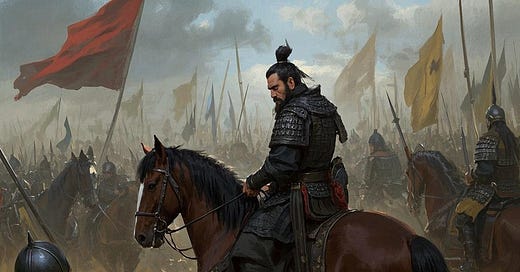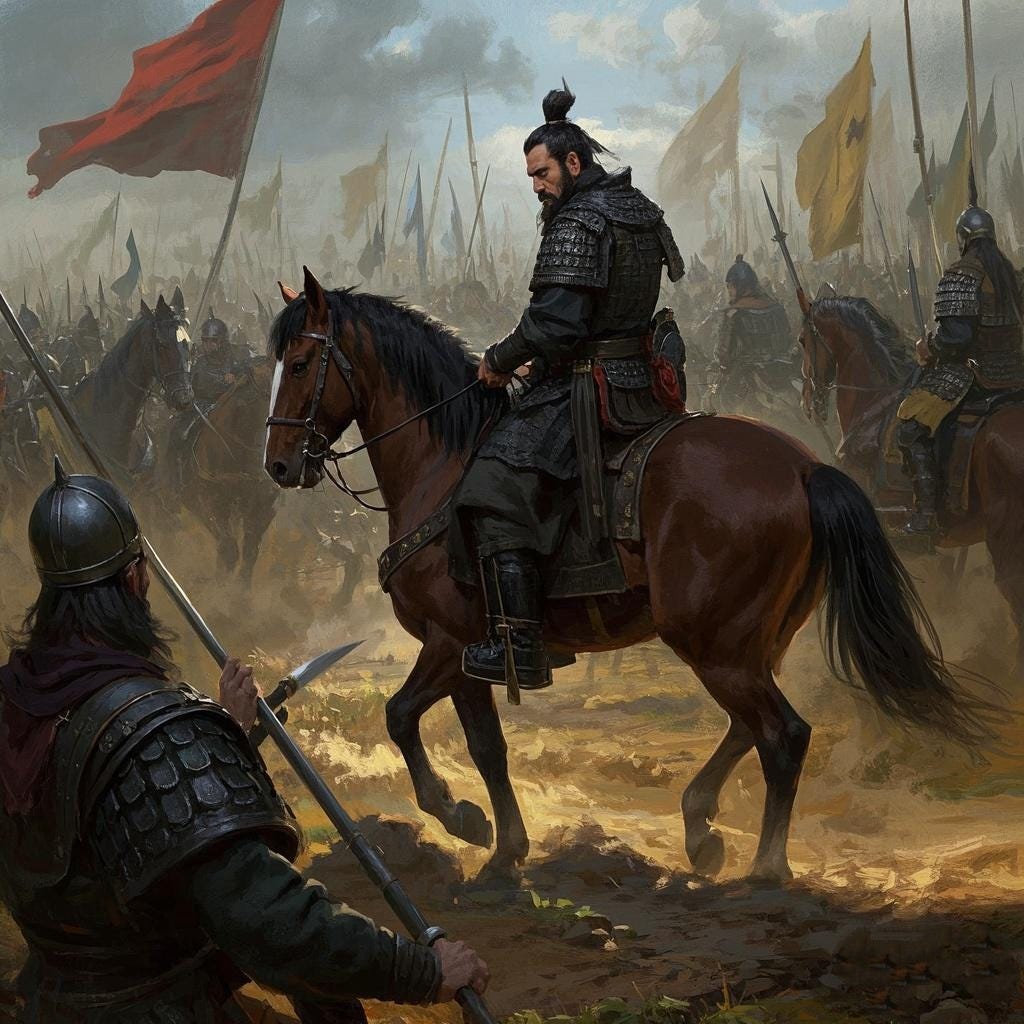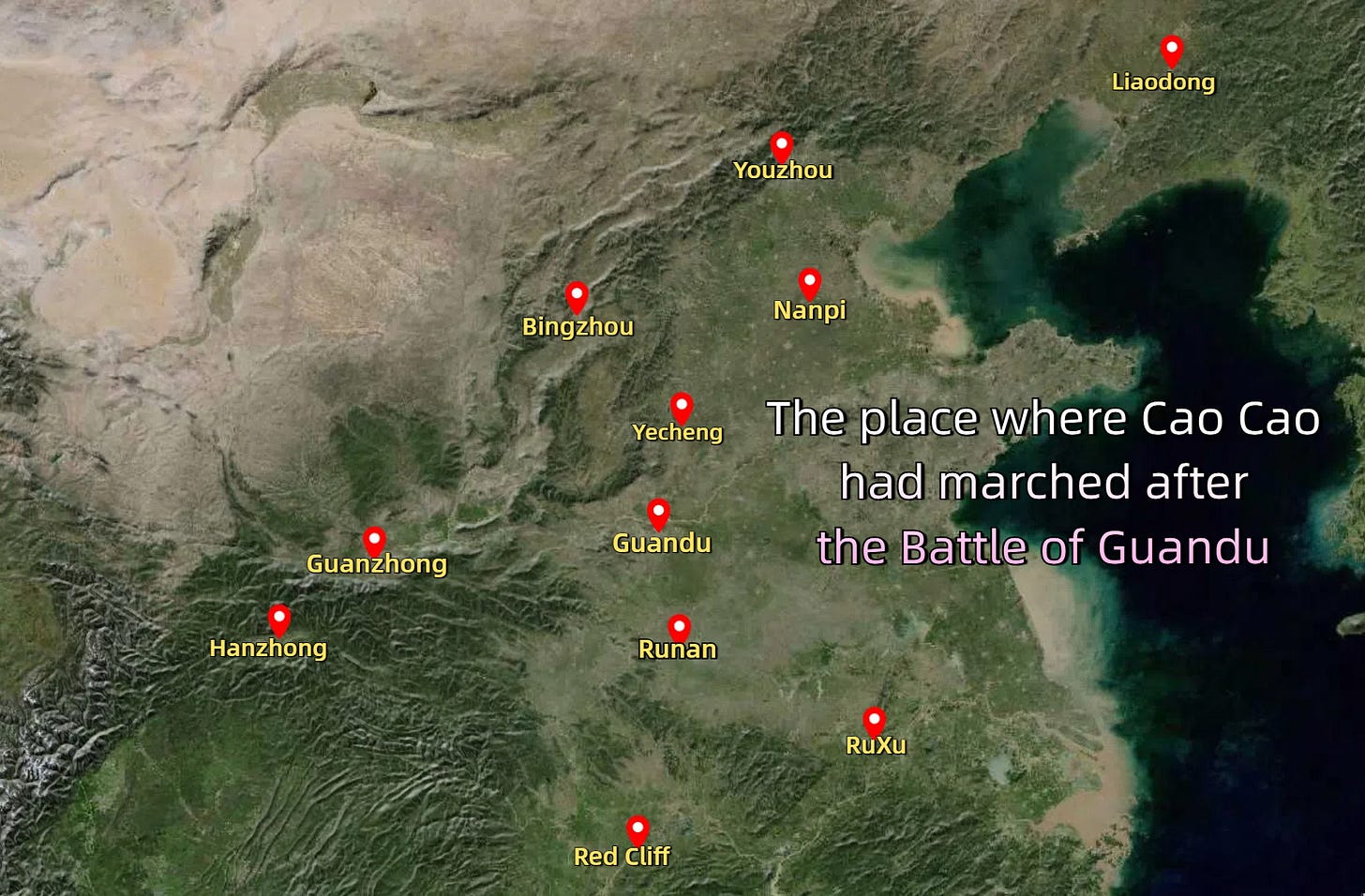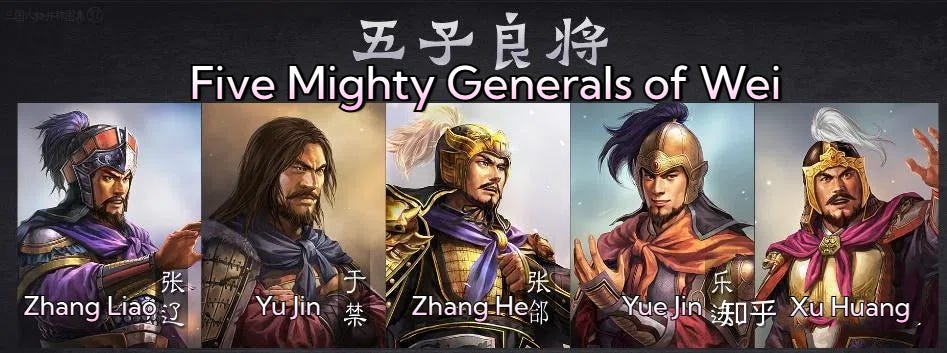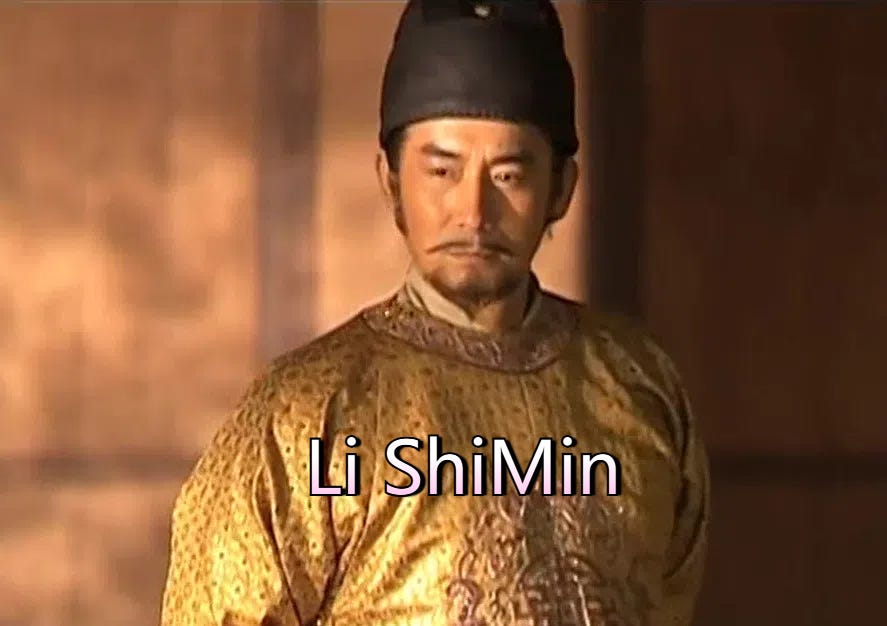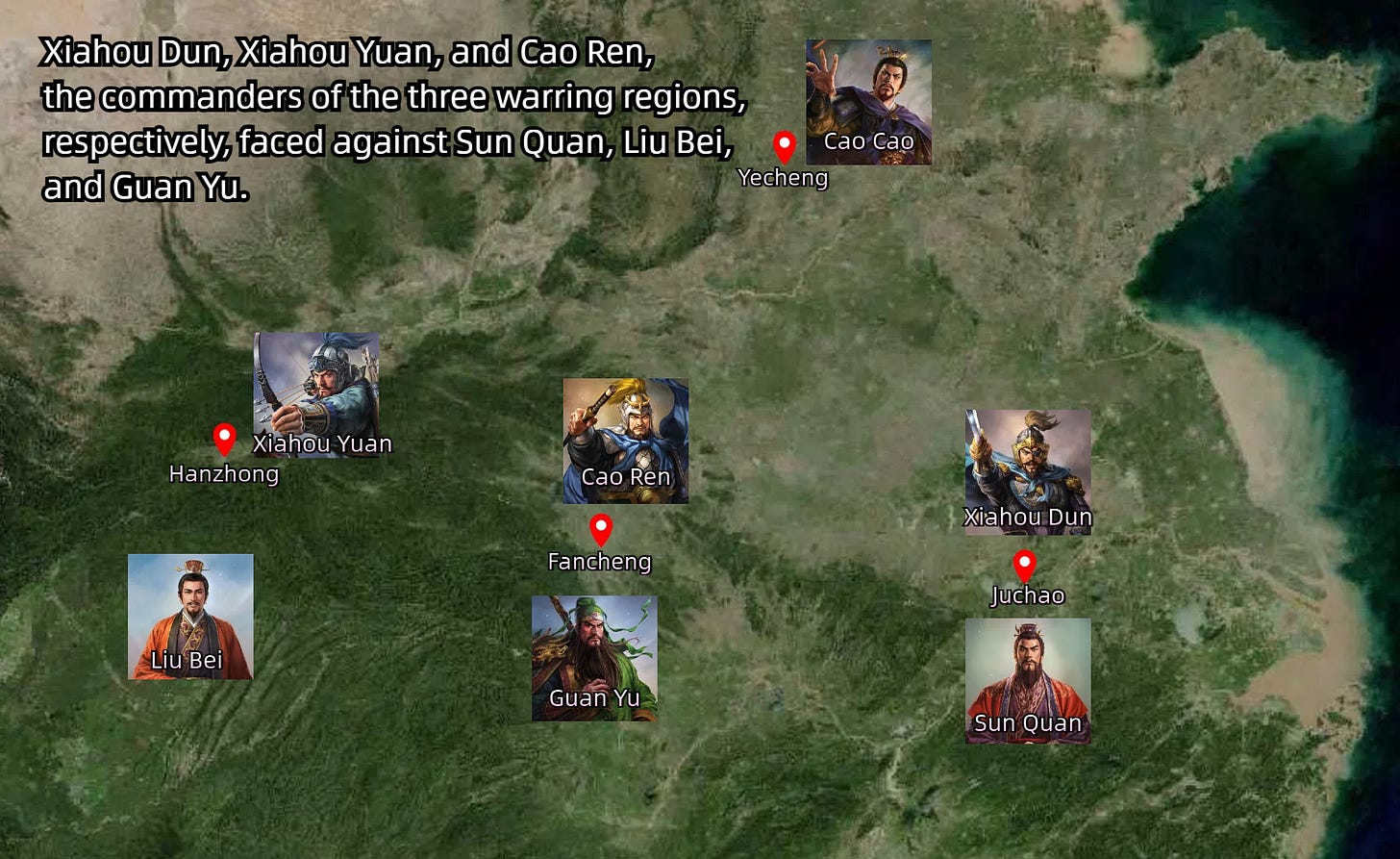Why was Cao Cao able to defeat the Mighty Yuan Shao, but unable to Unify all of China?
Three Kingdoms 122 - (Special - Review of Cao Cao's Life 7)
In the Battle of Guandu官渡, Cao Cao used all kinds of tactics to confront Yuan Shao, and finally, on the advice of Xu You许攸, who had defected from Yuan Shao and fled to him, Cao Cao let go and burned Wuchao乌巢, laughed in the end in the great battle that decided the belonging of northern China.
Compared to Cao Cao, Yuan Shao is not lacking in intelligence or ability, but lacks the courage to refuse to admit defeat to fate when he is in a desperate situation.
Yuan Shao comes from a prestigious family, and he is handsome, talented, and elegant. He can't imagine what it's like to feed on human flesh, and he can't understand the pain of being seriously injured but still holding out to fight with the enemy day and night, and constantly running around in a situation where he is surrounded by enemies.
Because there is always a way back for Yuan Shao , that's why he is always looking forward and backward, "just being defeated, only lost tens of thousands of soldiers,not a big deal, I Can revitalize and fight again,How can I put my live on scrambling the territory ?"
But Cao Cao is different; if he loses, he will have nothing, so he can only force himself to give his all.
After the Battle of Guandu, Cao Cao expelled Liu Bei in Runan汝南, defeated Yuan Tan袁潭, Yuan Shao's eldest son, in Nanpi南皮, Yuan Shang袁尚, Yuan Shao's third son, in Yecheng邺城, and Yuan Xi袁熙, Yuan Shao's second son, in Youzhou幽州. He also destroyed Yuan Shao's nephew, Gao Gan高干, subdued Zhang Yan张燕, leader of the Black Mountain Army, and traveled north to kill TaDun塌顿, leader of the Wuhuan乌桓 nomads . It took him another eight full years to reunite northern China, which had been split for many years.
In 208 A.D., Cao Cao, with the ambition of annexing the whole world, marched south with more than 100,000 of his best men, but only a few months later, it all went up in smoke with the fire at Red Cliff.
The defeat at Red Cliff was the biggest turning point in Cao Cao's life, and from that point on, leading troops and fighting wars became his secondary job, while adding to his ranks, replacing the Han Dynasty and building his own empire became his main job after the age of 54.
He conquered Ma Chao马超 in the west, won a successful battle, but ended abruptly halfway; his southern expedition to Hanzhong汉中, surrendered Zhang Lu张鲁, but stopped when just gaining one goal, and no longer take advantage of the situation to capture the whole province of Yizhou益州; he came to the estuary of RuXu濡须口 three times,every time his momentum is strong, but never a large-scale battle occurred, not mention crossing the Yangtze River.
The east wind that night at Red Cliff extinguished the flames in Cao Cao's heart. He marched to the bank of Yangtze River,but, with a lament, left behind a lifelong regret that he would not be able to conquer the south of China.
The Records of the Three Kingdoms states that Cao Cao's methods of warfare were mostly based on the articles of Sun Wu孙武 and Wu Qi吴起, but that he was able to adapt to different situations, set up surprise tactics, and defraud the enemy in order to achieve victory.
When fighting, Cao Cao always has a relaxed and easy-going demeanor, but when it comes to the critical moment, he becomes decisive and full of energy, so he wins every critical battle.
Cao Cao was a man who was good at recognizing talent. He promoted Yu Jin于禁 and Yue Jin乐进 among the common soldiers, put the surrendered generals like Zhang Liao张辽 ,Zhang He张郃 and Xu Huang徐晃 to important position, and countless others were promoted from the lower ranks by Cao Cao to become the Provincial or Commanderial governors.
As the commander-in-chief for more than 30 years, Cao Cao kept reading every day, discussing military strategies during the day and studying classics and history at night. Even when mending weapons and siege equipment, Cao Cao personally listed the methods of making them so that they could be used to maximum effect in combat.
Cao Cao had written 13 explanatory notes on Sun Tzu's Art of War, which were widely spread throughout the world.
More than 400 years later, Emperor Taizong of Tang, Li Shimin唐太宗李世民, once commented on Cao Cao: “Cao Cao is able to improvise in times of crisis, anticipate the enemy's chances, and set up fantastic tactics; he is worthy of being an outstanding military and tactical master, and He's too good to be a general, but he is not good enough of being an emperor.”
Since ancient times, the emperors who unified China and found a new empire,must have had at least one commander-in-chief who was able to control the whole army and in War- God-level.
Ying Zheng嬴政, who founded the Qin Dynasty(秦221-207BC), he had Wang Jian王翦; Liu Bang刘邦, who founded the Western Han Dynasty(西汉202BC-8AD), he had Han Xin韩信; and Liu Xiu刘秀, who founded the Eastern Han Dynasty(东汉25-220AD), had a number of excellent commanders among his founding ministers, though his glory was too dazzling to cover them. Yang Jian杨坚, who founded the Sui Dynasty(隋581-618AD),which was too easy, but he also had excellent commaders like Yang Su杨素 and Han Qinhu韩擒虎. Li Shimin, the god of war among emperors,Almost single handedly conquered all the opponents on the road to unification for the Tang(唐618-907AD) Empire,he even had such superb commanders as Li Jing李靖 and Li Ji李绩. Zhu Yuanzhang朱元璋, who founded the Ming Dynasty(明1368-1644AD), he also had Xu Da徐达. Even Liu Bei had Guan Yu and Zhuge Liang, and Sun Quan had Zhou Yu, Lyu Meng and Lu Xun, but what about Cao Cao?
Xiahou Dun夏侯惇?At the beginning of his career, Cao Cao gave Xiahou Dun and Cao Hong曹洪 several opportunities to lead troops on their own, but Xiahou Dun was defeated by Lu Bu in Xiaopei and was almost captured by Liu Bei in Bowangpo博望坡, while Cao Hong was even more difficult to be put in important position, and the qualifications of these two are really not good.
After the defeat at Red Cliff, Cao Cao was interested in cultivating Xiahou Yuan夏侯渊 and Cao Ren曹仁. As a result, although Xiahou Yuan fought bravely and pacified Guanzhong关中 and Liangzhou凉州, he also revealed the shortcomings of his bravery and tactlessness, and ultimately died under Dingjun Mountain定军山.
Cao Ren, despite his courage and intelligence, was an amateur in water warfare, and not only he was trapped in Fancheng樊城 along the Han River汉水 when he faced Guan Yu, but he also failed in the later water Battle of Ruxu estuary against Eastern Wu.
After all, Cao Cao lost to his own suspicious character. He always only trusted his clan's generals, and of the non-clan generals, Zhang Liao, Zhang He张郃, and Xu Huang, despite their numerous accomplishments, Cao Cao was always unwilling to allow them to become commanders of one war zone. In contrast to these generals, Cao Cao obviously trusted the civil officials more.
Before the Battle of Red Cliff, it was Zhao Yan赵俨 who supervised the seven armies of Yu Jin, Zhang Liao, Zhang He, Zhu Ling朱灵, Li Dian李典, Lu Zhao路昭 and Feng Kai冯楷. The one who controlled Zhang He and Xu Huang during the battle of Hanzhong was Du Xi杜袭. While defending Hefei合肥, Zhang Liao, Li Dian and Yue Jin were under the supervision of Xue Ti薛悌. It's all like that,the one who supervised tge whole army were all civil officials.
Before the battle of Hanzhong, Cao Cao knew that Xiahou Dun's ability to command the army was not good, but he also still let him command Zhang Liao, Zang Ba臧霸, and other 26 armies, and stationed them in JuChao居巢, which was only for defense, not for expansion. For the mighty generals like Zhang Liao, Zhang He and Xu Huang, the position of commander-in-chief of a military region could only be a distant dream.
Cao Cao's military command ability, in the late Han period is worthy at the top, he was able to win many times in the unfavorable situation of insufficient troops, lack of provisions, a series of heroes such as Yuan Shu, Tao Qian, Lu Bu, Liu Bei, and so on, were all afraid of fighting with Cao Cao.
But the country is so large that it is not just one or two provinces. If Cao Cao keeps himself personally conquering every major battle, how could he eventually unify the country as he wished?

